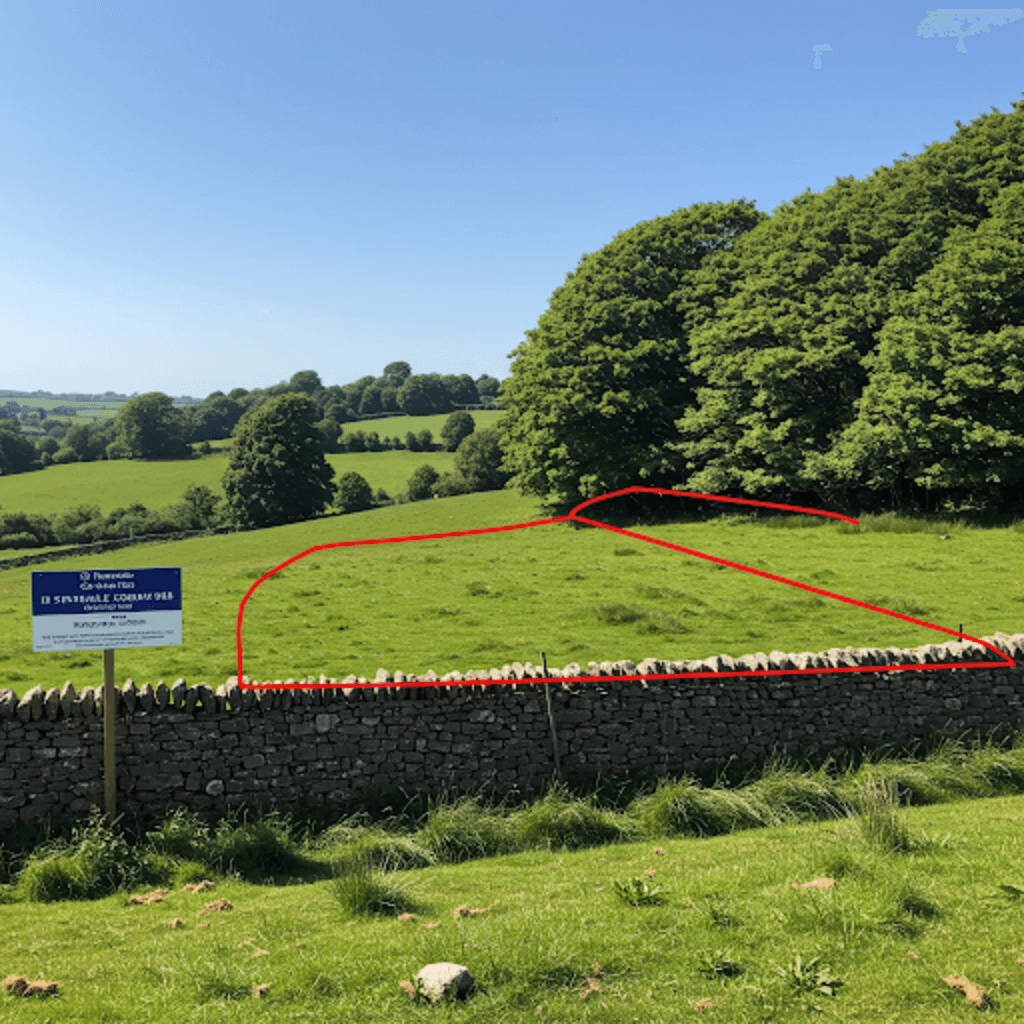
Buying Land in the UK: A Comprehensive Guide
The prospect of owning a plot of land in the UK, whether for building your dream home, starting a smallholding, or simply as an investment, is an exciting one. However, the process of buying land can be significantly more complex than purchasing a pre-existing property. This guide provides a comprehensive overview of what to consider before taking the plunge, helping you navigate the potential pitfalls and make informed decisions.
Understanding Different Types of Land
Before you start your search, it’s crucial to understand that land in the UK comes in various classifications, each with its own implications for potential use:
- Greenfield Land: This is land that has never been built on before, often found in rural areas. Developing on greenfield land is generally more challenging, requiring extensive planning permissions and facing potentially strong local opposition.
- Brownfield Land: This refers to land that has been previously developed, often in urban or industrial areas. Brownfield sites may be contaminated, requiring remediation before development, but planning permission is often easier to obtain.
- Agricultural Land: Land specifically designated for agricultural use. While building a dwelling is usually restricted, there may be possibilities for agricultural buildings or diversification projects, subject to planning.
- Residential Land: Land zoned for residential development. This is the most straightforward type of land to buy if your intention is to build a home.
- Commercial Land: Land designated for commercial purposes, such as offices, retail units, or industrial buildings.
The Importance of Planning Permission
Planning permission is arguably the most crucial aspect of buying land in the UK. Without it, your development dreams could be shattered. The planning system is complex and can be time-consuming, so it’s vital to do your homework thoroughly.
- Outline Planning Permission (OPP): This establishes whether the principle of development is acceptable on a particular site. It doesn’t grant permission to build, but it provides an indication of the likelihood of success for a full application.

- Full Planning Permission: This is the detailed approval required before any construction can begin. It includes specific plans, designs, and conditions that must be met.
- Permitted Development Rights: Certain minor developments, such as small extensions or outbuildings, may be allowed under “permitted development rights” without requiring full planning permission. However, these rights are often restricted, particularly in areas of outstanding natural beauty or conservation areas. It is always best to check with your Local Planning Authority.
Finding Land for Sale
Finding the right plot of land can be a challenge. Here are some avenues to explore:
- Online Property Portals: Websites specialising in property sales often have sections dedicated to land.
- Land Agents: Specialist land agents have in-depth knowledge of the local market and can provide valuable advice.
- Auctions: Land auctions can be a good way to find a bargain, but it’s essential to do your due diligence beforehand.
- Local Councils: Some councils maintain registers of land available for sale.
- Word of Mouth: Networking with local builders, architects, and landowners can sometimes uncover off-market opportunities.
- Strategic Land Companies: These companies purchase large tracts of land with the long-term aim of securing planning permission and selling it on for a profit.
Conducting Due Diligence
Before committing to a purchase, thorough due diligence is essential. This involves investigating various aspects of the land and its surroundings:
- Site Survey: A professional survey will identify any potential issues, such as ground stability, drainage problems, or the presence of protected species.
- Searches: Your solicitor will conduct various searches, including local authority searches, environmental searches, and drainage searches, to uncover any potential liabilities or restrictions.
- Title Deeds: These documents confirm the legal ownership of the land and any rights of way, covenants, or other restrictions that may apply.
- Utilities: Check the availability and cost of connecting to essential services such as water, electricity, gas, and drainage.
- Access: Ensure there is adequate legal access to the land, including any necessary rights of way over neighbouring properties.
- Flood Risk: Investigate the potential for flooding, especially if the land is near a river or coastline.
- Contamination: Especially important for brownfield sites, contamination checks are essential to discover previous land use and potential soil contamination.
Financing Your Land Purchase
Securing finance for land can be different from obtaining a standard mortgage. Lenders often view land purchases as riskier, and you may need a larger deposit.
- Specialist Land Mortgages: Some lenders offer mortgages specifically for land purchases, often with higher interest rates than residential mortgages.
- Self-Build Mortgages: If you plan to build a home on the land, a self-build mortgage may be an option. These mortgages release funds in stages as the build progresses.
- Bridging Loans: These short-term loans can be used to finance the purchase of land while you arrange longer-term funding.
- Private Finance: Consider alternative funding sources, such as private investors or crowdfunding.
Legal Considerations
Engaging a solicitor with experience in land transactions is crucial. They will guide you through the legal process, ensuring that all necessary checks and contracts are in place. They will also check for things like:
- Overage Clauses: Sometimes previous landowners will include clauses where they gain some profit in the event of a change of use.
- Restrictive Covenants: These can limit what you can build or do on the land.
Making an Offer and Completing the Purchase
Once you’ve found the right plot of land and completed your due diligence, you’re ready to make an offer. If your offer is accepted, your solicitor will handle the legal paperwork and exchange of contracts. Completion typically takes place a few weeks later, at which point the land becomes legally yours.
Buying land in the UK is a complex but potentially rewarding endeavour. By understanding the different types of land, the importance of planning permission, and the need for thorough due diligence, you can increase your chances of success and avoid costly mistakes. Remember to seek professional advice from land agents, surveyors, and solicitors throughout the process.







